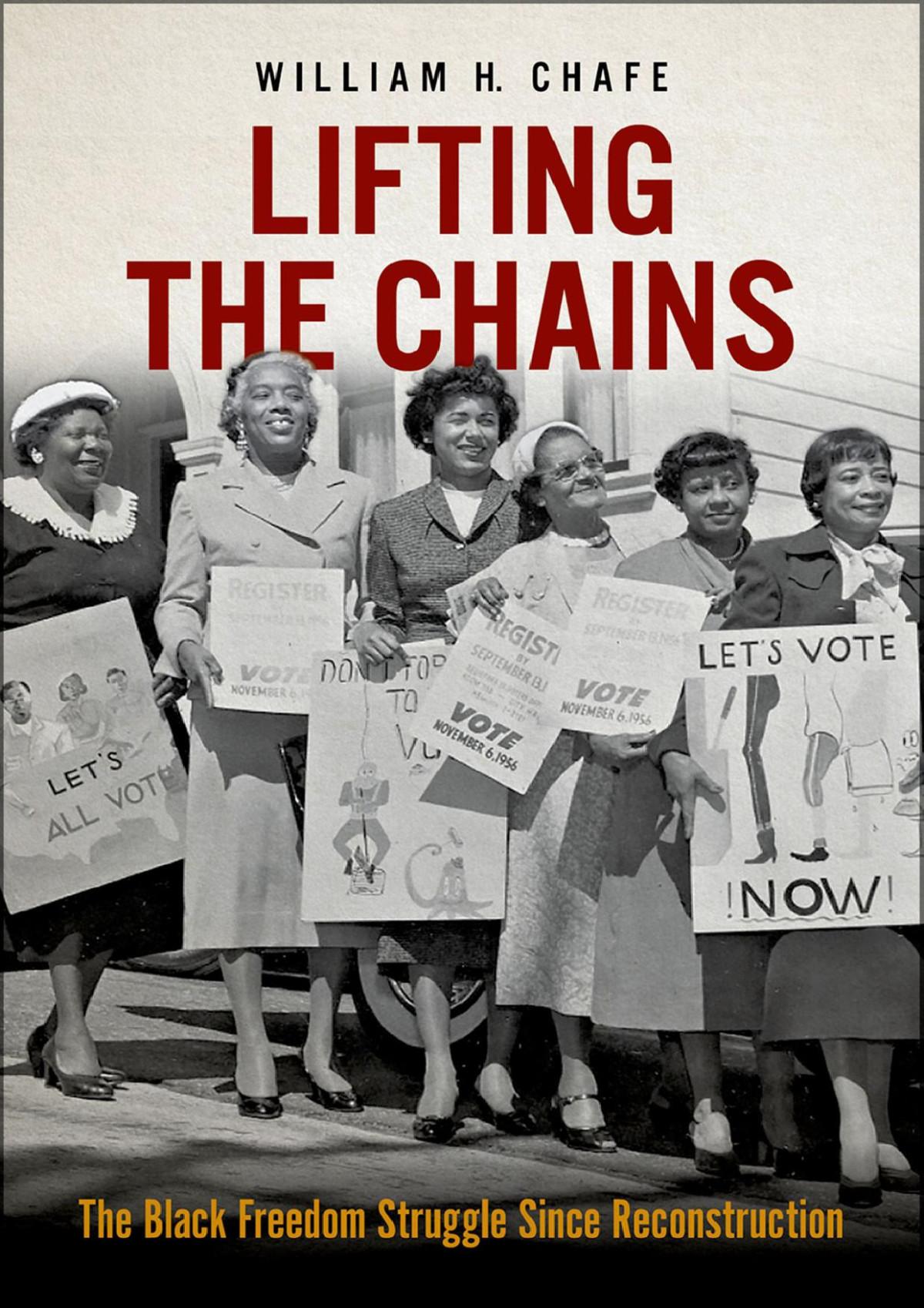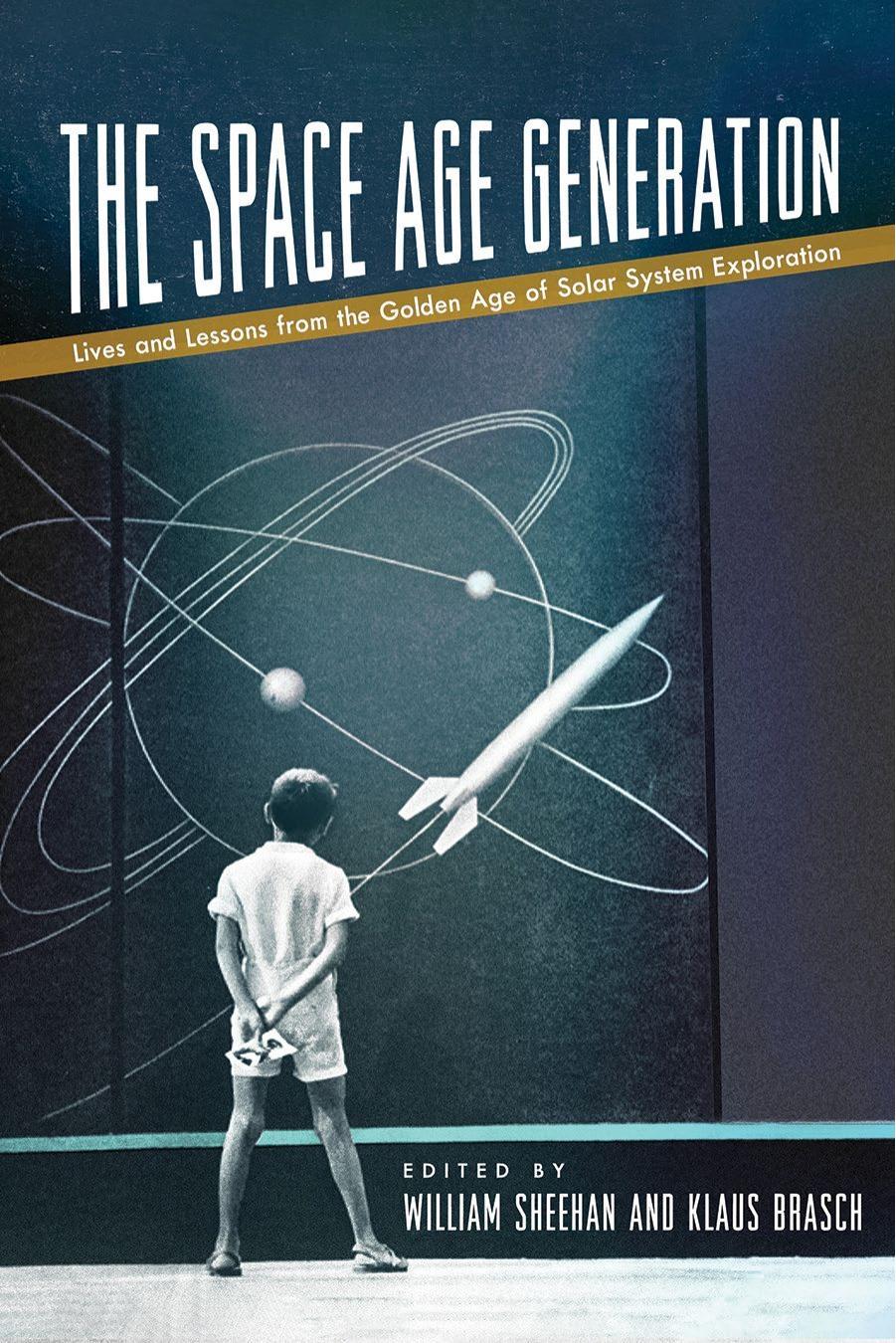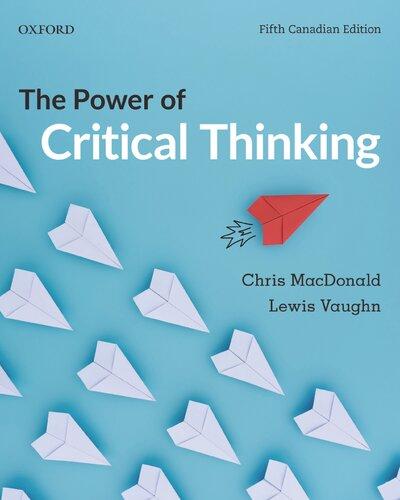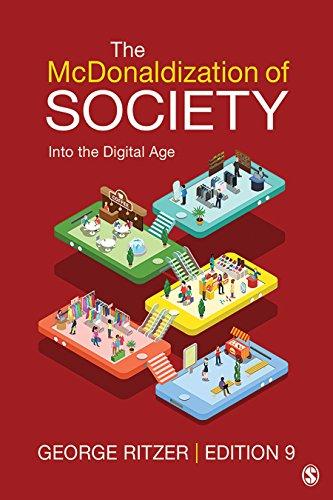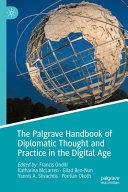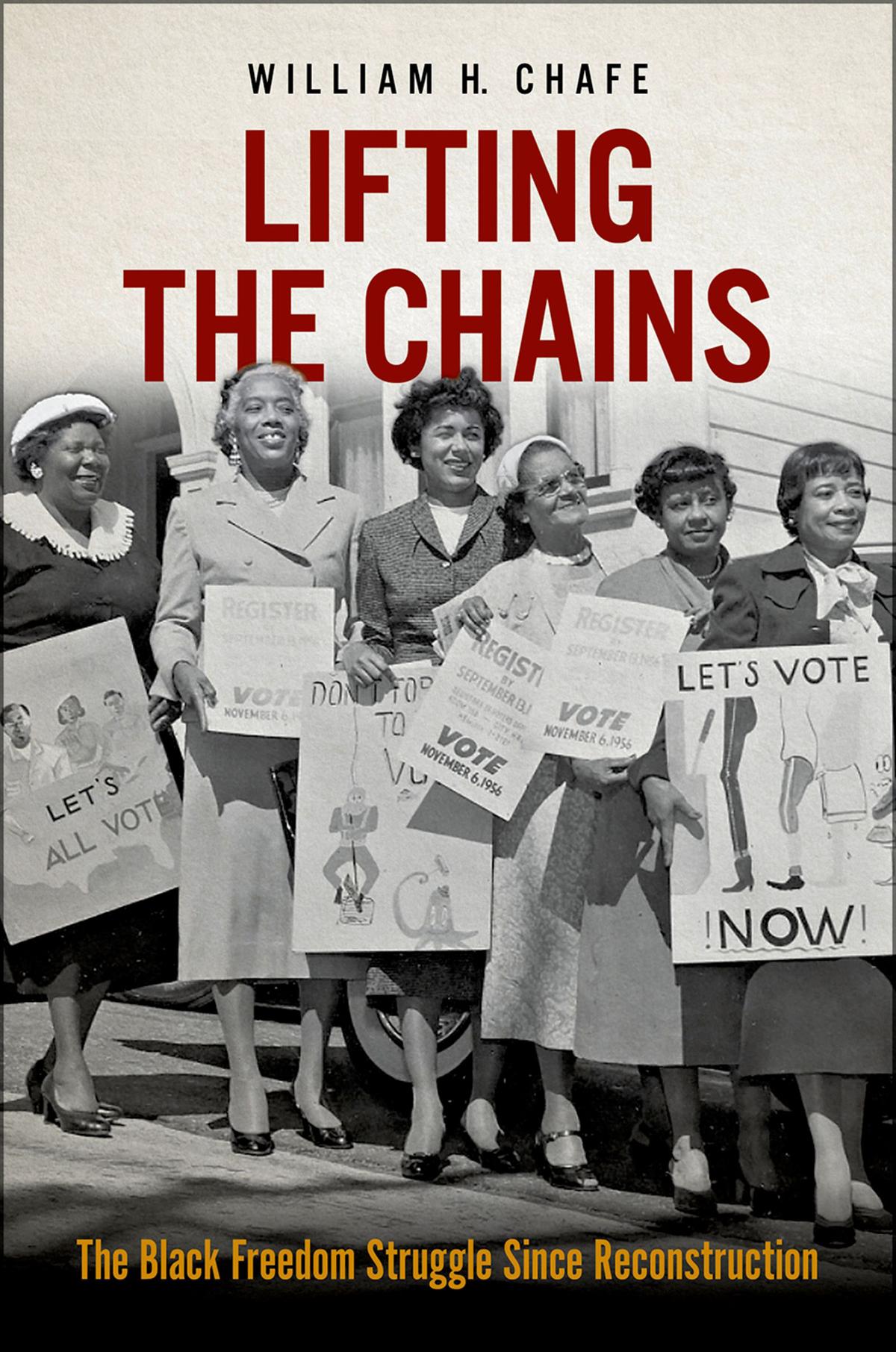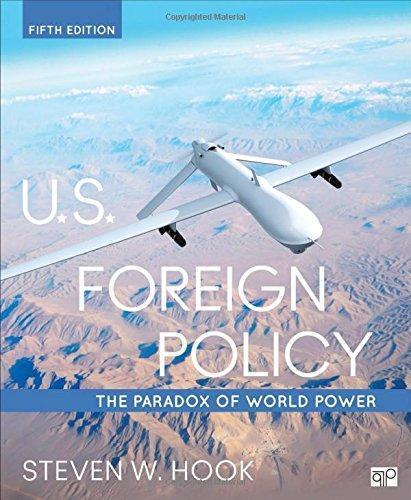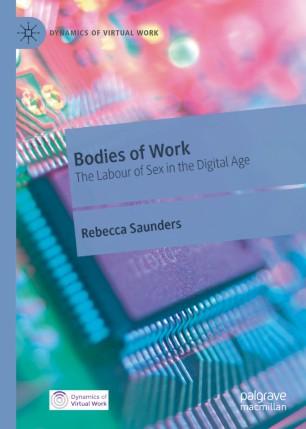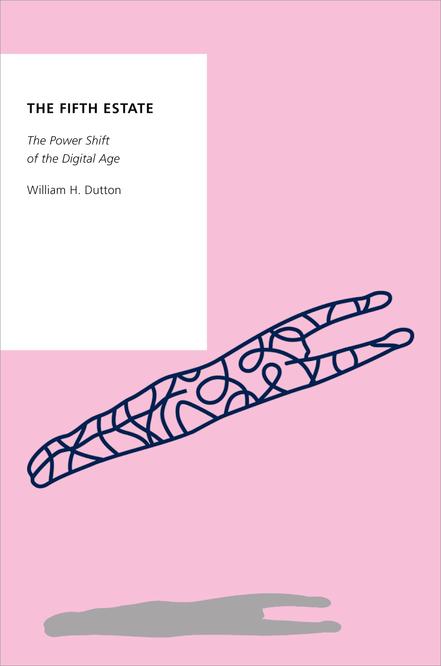The Fifth Estate. The Power Shift of the Digital Age William H. Dutton
Visit to download the full and correct content document: https://ebookmass.com/product/the-fifth-estate-the-power-shift-of-the-digital-age-willia m-h-dutton/
More products digital (pdf, epub, mobi) instant download maybe you interests ...
Lifting the Chains William H. Chafe
https://ebookmass.com/product/lifting-the-chains-william-h-chafe/
The Space Age Generation William Sheehan
https://ebookmass.com/product/the-space-age-generation-williamsheehan/
The Power of Critical Thinking: Fifth Canadian Edition
Chris Macdonald
https://ebookmass.com/product/the-power-of-critical-thinkingfifth-canadian-edition-chris-macdonald/
The McDonaldization of Society: Into the Digital Age 9th Edition, (Ebook PDF)
https://ebookmass.com/product/the-mcdonaldization-of-societyinto-the-digital-age-9th-edition-ebook-pdf/
Athenian Power in the Fifth Century BC Leah Lazar
https://ebookmass.com/product/athenian-power-in-the-fifthcentury-bc-leah-lazar/
The Palgrave Handbook of Diplomatic Thought and Practice in the Digital Age Francis Onditi
https://ebookmass.com/product/the-palgrave-handbook-ofdiplomatic-thought-and-practice-in-the-digital-age-francisonditi/
Lifting the Chains: The Black Freedom Struggle Since Reconstruction William H. Chafe
https://ebookmass.com/product/lifting-the-chains-the-blackfreedom-struggle-since-reconstruction-william-h-chafe/
U.S. Foreign Policy: The Paradox of World Power Fifth Edition – Ebook PDF Version
https://ebookmass.com/product/u-s-foreign-policy-the-paradox-ofworld-power-fifth-edition-ebook-pdf-version/
Bodies of Work: The Labour of Sex in the Digital Age
1st ed. Edition Rebecca Saunders
https://ebookmass.com/product/bodies-of-work-the-labour-of-sexin-the-digital-age-1st-ed-edition-rebecca-saunders/
The Fifth Estate
Oxford Studies in Digital Politics
Series Editor: Andrew Chadwick, Professor of Political Communication in the Centre for Research in Communication and Culture and the Department of Social Sciences, Loughborough University
Apostles of Certainty: Data Journalism and the Politics of Doubt
C. W. Anderson
Using Technology, Building Democracy: Digital Campaigning and the Construction of Citizenship
Jessica Baldwin-Philippi
Expect Us: Online Communities and Political Mobilization
Jessica L. Beyer
If . . . Then: Algorithmic Power and Politics
Taina Bucher
The Hybrid Media System: Politics and Power
Andrew Chadwick
News and Democratic Citizens in the Mobile Era
Johanna Dunaway and Kathleen Searles
The Only Constant Is Change: Technology, Political Communication, and Innovation Over Time
Ben Epstein
Designing for Democracy: How to Build Community in Digital Environments
Jennifer Forestal
Tweeting to Power: The Social Media Revolution in American Politics
Jason Gainous and Kevin M. Wagner
When the Nerds Go Marching In: How Digital Technology Moved from the Margins to the Mainstream of Political Campaigns
Rachel K. Gibson
Risk and Hyperconnectivity: Media and Memories of Neoliberalism
Andrew Hoskins and John Tulloch
Democracy’s Fourth Wave?: Digital Media and the Arab Spring
Philip N. Howard and Muzammil M. Hussain
The Digital Origins of Dictatorship and Democracy: Information Technology and Political Islam
Philip N. Howard
Analytic Activism: Digital Listening and the New Political Strategy
David Karpf
The MoveOn Effect: The Unexpected Transformation of American Political Advocacy
David Karpf
News Nerds: Institutional Change in Journalism
Allie Kosterich
Prototype Politics: Technology-Intensive Campaigning and the Data of Democracy
Daniel Kreiss
Taking Our Country Back: The Crafting of Networked Politics from Howard Dean to Barack Obama
Daniel Kreiss
Media and Protest Logics in the Digital Era: The Umbrella Movement in Hong Kong
Francis L. F. Lee and Joseph M. Chan
Bits and Atoms: Information and Communication Technology in Areas of Limited Statehood
Steven Livingston and Gregor Walter-Drop
Digital Feminist Activism: Girls and Women Fight Back Against Rape Culture
Kaitlynn Mendes, Jessica Ringrose, and Jessalynn Keller
Digital Cities: The Internet and the Geography of Opportunity
Karen Mossberger, Caroline J. Tolbert, and William W. Franko
The Power of Platforms: Shaping Media and Society
Rasmus Kleis Nielsen and Sarah Anne Ganter
Revolution Stalled: The Political Limits of the Internet in the Post-Soviet Sphere
Sarah Oates
Disruptive Power: The Crisis of the State in the Digital Age
Taylor Owen
Affective Publics: Sentiment, Technology, and Politics
Zizi Papacharissi
Money Code Space: Hidden Power in Bitcoin, Blockchain, and Decentralisation
Jack Parkin
The Citizen Marketer: Promoting Political Opinion in the Social Media Age
Joel Penney
Tweeting Is Leading: How Senators Communicate and Represent in the Age of Twitter
Annelise Russell
The Ubiquitous Presidency: Presidential Communication and Digital Democracy in Tumultuous Times
Joshua M. Scacco and Kevin Coe
China’s Digital Nationalism
Florian Schneider
Networked Collective Actions: The Making of an Impeachment
Hyunjin Seo
Credible Threat: Attacks Against Women Online and the Future of Democracy
Sarah Sobieraj
Presidential Campaigning in the Internet Age
Jennifer Stromer-Galley
News on the Internet: Information and Citizenship in the 21st Century
David Tewksbury and Jason Rittenberg
Outside the Bubble: Social Media and Political Participation in Western Democracies
Cristian Vaccari and Augusto Valeriani
The Internet and Political Protest in Autocracies
Nils B. Weidmann and Espen
Geelmuyden Rød
The Civic Organization and the Digital Citizen: Communicating Engagement in a Networked Age
Chris Wells
Computational Propaganda: Political Parties, Politicians, and Political Manipulation on Social Media
Samuel Woolley and Philip N. Howard
Networked Publics and Digital Contention: The Politics of Everyday Life in Tunisia
Mohamed Zayani
The Fifth Estate
THE POWER SHIFT OF THE DIGITAL AGE
WILLIAM H. DUTTON
Oxford University Press is a department of the University of Oxford. It furthers the University’s objective of excellence in research, scholarship, and education by publishing worldwide. Oxford is a registered trade mark of Oxford University Press in the UK and certain other countries.
Published in the United States of America by Oxford University Press 198 Madison Avenue, New York, NY 10016, United States of America.
© Oxford University Press 2023
All rights reserved. No part of this publication may be reproduced, stored in a retrieval system, or transmitted, in any form or by any means, without the prior permission in writing of Oxford University Press, or as expressly permitted by law, by license, or under terms agreed with the appropriate reproduction rights organization. Inquiries concerning reproduction outside the scope of the above should be sent to the Rights Department, Oxford University Press, at the address above.
You must not circulate this work in any other form and you must impose this same condition on any acquirer.
Library of Congress Cataloging-in-Publication Data
Names: Dutton, William H., 1947– author.
Title: The fifth estate : the power shift of the digital age / William H. Dutton. Other titles: 5th estate
Description: First Edition. | New York : Oxford University Press, [2023] | Series: Oxford studies in digital politics | Includes bibliographical references and index.
Identifiers: LCCN 2022054709 | ISBN 9780190688370 (Paperback) | ISBN 9780190688363 (Hardback) | ISBN 9780190688394 (epub) | ISBN 9780190688400
Subjects: LCSH: Internet—Social aspects. | Information society. | Pluralism. | Responsibility. Classification: LCC HM851 .D878 2023 | DDC 302.23/1—dc23/eng/20230224 LC record available at https://lccn.loc.gov/2022054709
DOI: 10.1093/oso/9780190688363.001.0001
Paperback printed by Marquis Book Printing, Canada
Hardback printed by Bridgeport National Bindery, Inc., United States of America
Preface
Networks—anchored in information and communication technologies like the internet—are used in ways that primarily follow and reinforce the existing distribution of power in societies. However, the internet and social media are enabling a new network power shift—the empowerment of networked individuals that can challenge institutions of the press, governments, business and industry, and public intellectuals and hold them more accountable to the public. This shift in the potential for networks to be used in ways that empower ordinary people is the power shift of the digital age.
This book explains the empirical basis for this claim and provides a theoretical understanding of its importance to democracy, politics, and society. Public understanding of the reality illuminated by the metaphor of a Fifth Estate is critical to its future. The empowerment of networked individuals exists by virtue of technology and policy choices across the world, but these choices are increasingly challenged by public fears, inappropriate regulatory responses, and geopolitical retreats from the vision of a free, open, and global internet.
It is in that spirit that this book seeks to convey the idea of a Fifth Estate as an empirically observable phenomenon as well as an ideal type that can be used to distinguish actors contributing to the Fifth Estate. It should be of value to those with a serious interest in the social and political dynamics of the digital age. It is relevant as well to those who place great promise in or hold deep concerns about the societal implications of the internet and related digital media.
I am optimistic about reaching well beyond academia with this book as so many people have great interest in and experience with the internet. Moreover, I have found the idea of the Fifth Estate to be relatively easy to convey to people well outside of my field. In fact, you may enjoy one very memorable instance for me when I was talking about this concept with a person I met in a jacuzzi. It was so understandable to this gentleman that it became the title of a movie!
The jacuzzi story occurred in 2011, around a talk I gave at the Alpbach Forum, in Austria, about my conception of the Fifth Estate. After my talk, sitting in a jacuzzi at my hotel in Alpbach, I met Daniel Domscheit-Berg—a key person at WikiLeaks, whom its founder, Julian Assange, had famously expelled. Like me, Domscheit-Berg was in Alpbach to speak. Daniel was lounging at the side of the pool with his partner—she had also been jettisoned from WikiLeaks. Learning who he was, I asked him about WikiLeaks and his new enterprise, OpenLeaks, explaining how central the concept of
a Fifth Estate could be in helping him see the larger role of his work in shaping power shifts of the digital age.
We had a fascinating conversation about Julian Assange and WikiLeaks. It was the year before, in 2010, that WikiLeaks released some of its most notorious content, including the Afghan War Diary, the Iraq War Logs, and classified diplomatic cables of the US State Department. Having been in receipt of this material, Julian Assange and his colleagues worked with a few respected newspapers to redact this material for public distribution in order to protect individuals identified in the cables. However, an unredacted set of these files became available through a hack that might have been enabled by a failure of WikiLeaks to adequately update passwords to the protected and unredacted files—a breach that motivated Domscheit-Berg to leave and marked the beginning of the end of a dramatic chapter for WikiLeaks.
During that conversation in Alpbach, I briefed Domscheit-Berg on my idea of the Fifth Estate, arguing that WikiLeaks provided an excellent illustration of a major political transformation—one that enables individuals like Julian Assange, other whistleblowers, and many networked individuals to use the internet and related social media in ways that can hold governments and other major institutions more accountable for their activities.
Since that memorable jacuzzi, I did not cross paths with Domscheit-Berg again. However, I later saw the 2013 release of the film The Fifth Estate, in which Daniel was the hero—opposing Julian Assange and providing insider information about WikiLeaks to a fictional journalist of The Guardian newspaper. As I watched the movie, I saw our conversation from 2011 played out in the closing dialogue between Domscheit-Berg and the journalist, who concluded that what happened with WikiLeaks was heralding an entirely new information era enabled by the internet. Wikileaks was “charting a course” for changes in the dynamics of power shifts among actors across the globe.
While the script of this conversation might have captured key features of my basic argument, I have argued that leaks are only one of many strategies that networked individuals can use to enhance their networked communicative power relative to other and often more powerful actors across all sectors of society.
Of course, the Fifth Estate has been used not only as the title of a movie about WikiLeaks. It has also been used in many other ways, such as bloggers as watchdogs of the press. Some bloggers act as watchdogs, or so-called media watchdogs, even though the Fifth Estate envisions a watchdog role across all institutions, including the press. And it was used by others to refer to think tanks as independent checks on government and industry. Some think tanks use the internet to enhance their role, but they are not the Fifth Estate from my perspective. It has even been used as the title for a Canadian television show that serves as a watchdog by reporting investigations into various topics of importance to society. None of these capture the full range of actors in the Fifth Estate and the strategies they have at hand in our digital age. Even if you think you know what I mean by a Fifth Estate, please read on. You might well discover it to be a broader and more meaningful concept than you imagined and begin applying it to your own work.
As I will explain in this book, I have adapted a preindustrial age metaphor of estates of the realm to reframe discussion of the social and political role of the internet and social media in politics and everyday life in the digital age. I have been working on the
development of this concept since first presenting the basic argument behind my use of this term in 2007.
Essentially, the Fifth Estate connotes a network power shift—unique to the digital age of the internet and related social media. It is composed of a moving, ever-changing collectivity of individuals who are strategically using online networks in ways that enhance their informational and communicative power vis-à-vis other actors. As a metaphor, the concept seeks to convey a new theoretical conception of how the use of the internet has fundamentally changed the dynamics of communication and power in politics and society—making politics and society more pluralistic by enabling networked individuals to exert a more independent and strategic role in shaping information and communication across all sectors of society.
In the social sciences, the Fifth Estate would be called a “sensitizing concept” as it is designed to bring you—the reader—to a set of concrete empirical observations. Once identified, the Fifth Estate is used as well as an “ideal type,” providing a description of strategic behavior that fits or departs from those patterns identified with this concept. In similar ways, notions of the Fourth Estate define the characteristics of an ideal type of independent press. As with other theoretical concepts, once understood, as a sensitizing concept or as an ideal type, it tells you what to look for—what is important—to understand the politics of the Fifth Estate in the digital age.
That said, this concept captures how the new media of networking are reshaping not only political institutions and processes, such as governance, but also nearly all institutions and processes of society, from business and industry to the news and everyday life. The object of this book is to fully explain this concept, which will provide an understanding of the political and other social dynamics of empowering networked individuals of the digital age.
In describing my conception and anchoring it in empirical research, I argue that this conception should define the Fifth Estate for the field going forward. Ironically, my hope is that this ancient metaphor will help discussion of the political dynamics of the internet to break away from more traditional, institutionally centric conceptions of democratic and other social processes, which miss some of the most fundamental changes ushered in by the Fifth Estate. Drawing on decades of research, this book explains the nature and significance of these innovations and their social and political implications, illustrated by examples of the Fifth Estate in action. In such ways, this book seeks to provide fresh insights and analysis of the far-reaching social, political, and cultural changes tied to the use of social networking and other internet-related digital media and technologies.
My argument is that the framing of the concept of the Fifth Estate provides a new and empirically grounded perspective on how the internet has been used to support more pluralist democratic and social accountability. The controversies surrounding political and social upheavals over the past decade, such as in Tunisia and Egypt, or with WikiLeaks, or climate change and the extinction rebellion, have highlighted the significance of the internet in politics and governance. In such ways, this book will provide a realist’s response to utopian visionaries and dystopian skeptics who dominate debate over the political implications of the internet.
To make this work more accessible, I use many examples from the short but truly incredible history of the internet, as well as from key developments that predate the
rise of the internet. Too many discussions of the internet seem to lose any anchor in its historical development over the decades.
And while much of my research on the internet is based on my work in the United Kingdom and the United States, this book draws on data and examples worldwide, including global surveys of internet users and studies of internet use in many other nations across all regions of the world. The Fifth Estate developed with the rising diffusion and use of the internet across the globe—reaching beyond half of the world’s population, and I hope it will be fully understood in its global significance.
Throughout this book, I use the terms internet, social media, and digital media to encompass separate but often overlapping information and communication technologies (ICTs). Some students of internet studies accept a narrow definition of the internet as a specific set of artifacts, protocols, or standards that enable heterogenous computers and digital devices to be networked, such as the Transmission Control Protocol/ Internet Protocol (TCP/IP). Throughout this book, I refer to the “internet” in a broader sense to reference this network of networks and all the applications that are anchored to it, such as email, the World Wide Web (or web), and social media. Their use drives the network power shift of the Fifth Estate.
I use “social media” when I refer to applications that enable users to more easily post content and network with other users, such as YouTube, Facebook, or Instagram. Discussions about user-generated content (UGC) generally refer to much of the content on social media, even though many other internet uses, such as websites and email, have similar functions.
I use the term “digital media” to connote the broadest scope, as it would include digital information and communication that might not be networked over the internet, such as when you share photos with a person collocated with you or use earphones linked to your mobile via a blue tooth connection. Machine-to-machine communication, for example when tracking the location of a smartphone, would be subsumed by the term digital media. All these various technologies are among the assemblage of artifacts and media interrelated with one another in the hybrid media environment that enables the network power shift defined by the Fifth Estate.
The book argues that the idea of the Fifth Estate is valuable for a number of reasons. You’ll see that academic research has recognized many of the patterns and trends in the use and impact of the internet and related media described in this book, but they remain largely fragmented and disjointed. The Fifth Estate provides a conceptual approach that enables many agreed-upon observations, such as about search and social media, to be more coherently connected.
Practically, the Fifth Estate has become a remarkably powerful force, even though most of the public are unaware of its existence. Public awareness of the Fifth Estate as an ideal, one that will be developed in this book, could help enhance and protect this new collectivity and its democratic role in politics and society. Networked individuals need to be more conscious of the informational and communicative power they can wield and better appreciate the civic responsibilities that accompany it—as citizens of the digital age. An individual’s agency can be enhanced by their personal awareness of the Fifth Estate.
Theoretically, the Fifth Estate contributes to several prominent and emerging theoretical perspectives on politics, governance, and the role of the internet in society.
Political perspectives on pluralism and the distribution or separation of powers can be advanced by embedding the role of Fifth Estate actors. Contemporary theories of governance are broader than a more limited traditional focus on governments, political parties, and interest groups. Governance increasingly incorporates the wider social and economic context of governments and would be remiss not to include the role of ordinary networked individuals of the Fifth Estate. Likewise, theoretical perspectives on the politics of networking and the network society can be enhanced by an understanding of Fifth Estate actors, which builds on existing notions of network power, that are explained in this book.
From a policy standpoint, the Fifth Estate provides a lens for understanding and evaluating policy and regulatory initiatives. An appreciation of the role of the Fifth Estate could bring added global support for protecting freedom of expression and privacy, critical to the vitality of the Fifth Estate, along with support for internet regulation and policy that maintains the value of the internet for individuals to search, source, and network locally and across the world with increased autonomy from governmental or commercial controls that inappropriately limit or otherwise bias these outcomes. Policy research needs to focus more attention on threats to the values and affordances underpinning the Fifth Estate. Old foci on competition, for example, become more meaningful as a means for supporting choice by networked individuals in sourcing and searching the internet and related digital media.
Furthermore, as you move through the case studies of this book, you’ll see that some of the most creative and colorful actors and dramatic developments around the internet are tied to the Fifth Estate. The sheer diversity of initiatives is remarkable, but they are all tied together by the role the internet plays in empowering networked individuals— virtual citizens of the digital age.
Conceptions of the social and political roles of the internet and related digital media have oscillated over the years. Initially, they were merely interesting innovations of no particular significance to politics or society. As the internet diffused more widely, utopian conceptions arose around deterministic notions of the internet democratizing the world. Later, as the internet became taken for granted as a tool of everyday life and work, it was dismissed as simply a part of our everyday life, until it became a perceived threat, such as around fake news. Dystopian conceptions arose around more deterministic views on how the internet was ushering in incivility, populist authoritarianism, and a litany of cyber harms—leading to what has been called a “tech lash.” Then, in that context, the experiences of the COVID-19 pandemic brought a sobering realization that the internet was providing a lifeline for individuals and communities around the world during periods of limited travel and social interaction resulting from the pandemic. Perhaps the world has reached a point when utopian and dystopian perspectives and the determinisms behind them can be set aside for a more realistic understanding of the actual social and political dynamics of one of the most important power shifts of the digital age.
Acknowledgments
I personally regard my conception of the Fifth Estate as my most significant contribution to the study of the social and political dynamics of the internet and related media, information, and communication technologies. But my realization of what could be a new and useful idea was the outcome of decades of research in what was initially a small and very specialized field of internet studies, which has become one of the most burgeoning fields of the twenty-first century.
I studied political science in graduate school in the early 1970s at the University of Buffalo (then SUNY Buffalo). In 1974, I was then able to bring a political perspective to the study of computing in one of the first empirical studies of the role of computing in government. It was called an evaluation of urban information systems (the URBIS project) at the Public Policy Research Organization (PPRO) at UC Irvine. This project enabled me to work with the late Rob Kling, Ken Kraemer, Jim Danziger, the late Alex Mood, and John Leslie King, where one of my key foci was on the power shifts tied to computing in organizations. My interest in power shifts followed me to my work at the Annenberg School at the University of Southern California and then to Oxford University as its first Professor of Internet Studies and Director of the Oxford Internet Institute (OII).
In my early years at Oxford, my interest in power shifts helped me see the Fifth Estate emerge in the data I will describe in this book. But invaluable support was provided to my work through various funded projects that enabled me to look at different aspects of this concept. These included the Fifth Estate Project, supported by the Quello Center at Michigan State University; the OII; Oxford Internet Surveys (2003–13, 2019–22); and June Klein at Electronic Boardroom. My work on the Oxford Internet Surveys (OxIS) was complemented by involvement in the World Internet Project (WIP), coordinated at the Annenberg School’s Center for the Digital Future. Additional global research of mine was enabled by work with UNESCO on freedom of expression and by grants for the Internet Values Project, which I conducted at the OII in collaboration with INSEAD, Cornell University, comScore, the World Economic Forum (WEF), and ictQATAR.
Many other projects in internet studies fed into my conceptualization of the Fifth Estate, including work when directing the UK’s Programme on Information and Communication Technologies (PICT) in the late 1990s, with David Bray and others on the Performance of Distributed Problem- Solving Networks (DPSN) Project
(2007–8), which I directed with support from McKinsey and Company. I directed the Oxford e- Social Science Project (OeSS), supported by the Economic and Social Research Council (2005–12), which introduced me to networked collaboration and big data and computational analytics before the term “big data” was invented. Work on collaboration was supported as well by my involvement with a project on User-Driven Collaboration at the Technical University of Denmark (DTU) that was completed in 2014. Google funding enabled me in 2017 to direct a project on how people get information about politics, called the Quello Search Project, based at the Quello Center at MSU, which countered many deterministic views of echo chambers and filter bubbles that were dominant in the field at that time.
I wish also to acknowledge the many personal and public stories of the Fifth Estate used throughout this book as concrete illustrations of its role in politics and society. While many examples are noted and cited, many more could not be included without overwhelming readers. After reading this book, you might find it impossible to read a newspaper or listen to the news without seeing many examples of the Fifth Estate in developments around the world. I thank those who have documented these examples and apologize to all those whose experiences are just as relevant but impossible to cover in this book.
I wish to thank my editor at Oxford University Press, Angela Chnapko, who has been supportive of this book from the beginning and through the pandemic. My thanks as well to the editor of the series on digital politics, Professor Andrew Chadwick at Loughborough University. His vision for this series and support for my work was motivating. I am also grateful to two anonymous reviewers who provided insightful and constructive recommendations, which improved this book. It is an honor to be among the volumes in this series.
During the process of writing, Barbara Ball provided valuable copy-editing in preparing chapters for the publisher. My thanks to her and copy-editors at Oxford University Press. Their attention to detail and style has improved the clarity and consistency of this book.
Finally, I owe a huge debt of gratitude to all those who supported my work over the years and collaborated with me on related projects and papers. I’ve sought to acknowledge and cite this work throughout the book but apologize again if I have failed to give due credit to anyone. Many and various pieces of my work all added up to the Fifth Estate as a conception that I hope will repay the patience and brilliance of my colleagues in academe and at Oxford University Press.
List of Figures xvii
List of Tables xix
List of Boxes xxi
List of Abbreviations and Acronyms xxiii
Introduction: Reconfiguring Informational and Communicative Power 1
Part I THE FOUNDATIONS OF THE FIFTH ESTATE
1. The Idea and Evidence of a Fifth Estate 19
2. Fifth Estate Theories of Distributed and Network Power 33
Part II FIFTH ESTATE STRATEGIES
3. Searching 59
4. Originating 77
5. Networking 99
6. Collaborating 119
7. Leaking 139
8. A Power Shift for Democracy and Society 159
9. Threats to the Fifth Estate 177
10. The Future of the Fifth Estate 203
Notes 223
Bibliography 233 Index 249
3.1 Looking for Information on Different Media 64
3.2 Ways to Look for Information Online by Year 66
4.1 Percentage of Likely Spectators, Attentives, and Fifth Estate 86
I.1 How the Internet Is Reconfiguring Access 2
1.1 Network Digital Media, Information, and Communication Technologies 25
1.2 Networked Individuals Across Institutional Arenas 29
1.3 Fifth Estate Strategies Enhancing Communicative Power 30
2.1 Preindustrial Estate Metaphors for the Postindustrial Digital Age 39
2.2 Montesquieu’s Tripartite Distribution and the Separation of Powers 40
2.3 The Fifth Estate and Other Institutions: Partnerships and Threats 46
2.4 Attacks on the Fifth Estate by Other Estates of the Realm 52
3.1 Percentage of Respondents Who Would Go First to Different Sources for Information About Selected Topics, Britain 65
3.2 Percentage Rating How Reliable and Accurate Information Is from Different Sources 68
3.3 Importance of Different Media as Sources of Information, Percent 70
4.1 Items Used to Estimate Likelihood of Fifth Estate Participation, 2013 84
4.2 Devices and Activities in UK That Underpin Fifth Estate 86
4.3 Social Media Use in the UK 88
5.1 Examples of Digital Networking Media 102
5.2 Illustrations of Social Media and the Fifth Estate 106
6.1 Fifth Estate Collaboration of Networked Individuals 123
7.1 Illustrations of Leaks Tied to a Fifth Estate Strategy 141
9.1 Actors Involved in the Cambridge Analytica Story 179
Boxes
1.1 Greta Thunberg: Climate Activist 20
1.2 Informational and Communicative Power 27
2.1 Agenda Setting 54
2.2 Issue Framing 55
3.1 The Oxford Internet Surveys (OxIS) 60
3.2 The World Internet Project 61
3.3 The Quello Search Project 62
4.1 Innovations for Individuals to Create and Distribute Content 79
4.2 Videotex(t) 81
4.3 Impact of the Deepwater Horizon Explosion and Oil Spill 82
4.4 News of the Gas Explosion in Nanjing, China 82
4.5 Types of Networked Individuals 87
4.6 Examples of Fifth Estate Actors Creating Impactful Content 90
4.7 The Streisand Effect 91
5.1 The Cut: Social Media Protests Sparked by Repression in Iran 107
6.1 Collaborative Network Organizations 120
6.2 Malaysia Flight 17 Shot Down over Ukraine in 2014 131
6.3 eyeWitness to Atrocities 132
7.1 Hackers 140
7.2 The UK’s Phone-Hacking Scandal 142
8.1 Facebook’s Whistleblower Frances Haugen 160
8.2 Arenas of Digital Innovation in E-Government and E-Democracy 164
8.3 Polis and Taiwan’s Gov Zero Civic Hackers 165
8.4 The Internet and the Madrid Train Bombings 167
8.5 Tweeting the 2016 Trump-Biden Televised Presidential Debate 167
8.6 The Surkov Leaks 171
9.1 Harms Covered by the Online Harms White Paper 185
9.2 Search Engine Optimization 196
10.1 Flaming 212
10.2 Aspects of Cybersecurity Capacity 215
10.3 Targeted Censorship of Disinformation Chinese Consul General Campaigns 217
Abbreviations and Acronyms
ACLU American Civil Liberties Union
ALS Amyotrophic lateral sclerosis
ARPA Advanced Research Projects Agency
BBS Bulletin board system
BCC Blind carbon copy
BGP Border Gateway Protocol
BLM Black Lives Matter
CB Citizen band
CC Carbon copy
CNO Collaborative Network Organization
CPW Cambridge University’s Prosociality and Well-Being Lab
DWSD Detroit Water and Sewage Department
EFF Electronic Frontier Foundation
EMISARI Emergency Management Information System and Reference Index
EPA Environmental Protection Agency
FCC Federal Communications Commission
GSR Global Science Research
GWAP Games with a Purpose
ICO Information Commissioner’s Office
ICT Information and communication technology
IP Internet protocol
IPAB I Paid a Bribe
ISP Internet Service Provider
IWF Internet Watch Foundation
MOOC Massive open online courses
NSA National Security Agency
NTIA National Telecommunications and Information Administration
OEP Office of Emergency Preparedness
Ofcom Office of Communications, UK
OII Oxford Internet Institute
OXIS Oxford Internet Surveys
PEN Public Electronic Network
PGP Pretty Good Privacy (software)
xxiv Abbreviations and Acronyms
PICT Programme on Information Communication Technologies
PMS Picturephone Meeting Service
PPRO Public Policy Research Organization
RMT Rate My Teacher
RSPCA The Royal Society for the Prevention of Cruelty to Animals
SMS Short Message Service
TCP Transmission Control Protocol
UGC User-generated content
URL Uniform Resource Locator
VPN Virtual Private Network
WEF World Economic Forum
WELL Whole Earth “Lectronic Link”
WFH Working from home
WIP World Internet Project
WWW World Wide Web
Reconfiguring Informational and Communicative Power
The global diffusion and increasing centrality of the internet, social networking, blogging, texting, tweeting, and other digital media and services have enabled networked individuals to reconfigure their access to new and alternative sources of information, people, services, and related technologies of the digital age. Early in the twenty-first century, a critical mass of networked individuals had developed in most localities and nations, which can source information and network with others in ways that support distributed accountability in government, politics, business, industry, the media, and everyday life.
The rising influence of networked individuals is valued by some but feared by many as it introduces a major change that threatens the ecology of actors shaping all the traditional sectors of politics and society. The internet does not simply substitute digital media for traditional forms of information and communication, it changes how we do things and the outcomes of those activities. This book argues that the internet is playing an overwhelmingly positive role that is analogous to and as significant as the rise of the Fourth Estate, enabled by the emergence of an independent press since the eighteenth century.
This book presents the theory and empirical evidence that a network power shift has enabled a “Fifth Estate” through the networking of individuals in ways that create a new source of accountability, not only in government and politics but also in all sectors of society. It explains how the internet has become a platform for networking individuals in ways that can challenge the influence of other more established bases of institutional authority and that can be used to complement but also increase the accountability of the press, politicians, physicians, scientists, and other experts by offering networked individuals with alternative sources of information, opinion, and social support. The benefits as well as risks tied to this network power shift are addressed throughout this book.
The Power of Reconfiguring Access
Since the early days of computing, people have debated the implications of computers and telecommunications on the relative power of different actors in organizations and society. This debate was broadened with the emergence of the internet, which extended
computing beyond organizational and institutional boundaries and blurred them. Competing perspectives have developed around the power shifts tied to the internet, including more technologically deterministic (driven by technical change) and more socially shaped (driven by the choices of users and producers) perspectives.
Despite early optimism around the democratic potential of the internet, conventional wisdom has tied the internet to enabling a less democratic, more centralized, if not autocratic, model of control by big governmental and big tech business institutions. Since the 1980s, however, major scholars have often argued that advances in information and communication technologies like the internet and related digital media and computer-mediated communication systems are inherently more democratic than more centrally controlled one-to-many technologies, like print and broadcasting. On the one hand, Ithiel de Sola Pool (1983) called computer-mediated communication systems “technologies of freedom.” Decades later, on the other hand, critics have argued that the internet can be designed and implemented in ways that support concentration, an autocracy rather than democracy (Hindman 2009; Howard 2011). Other critics worry that this communication revolution underpinned by the internet has fueled the opposite, such as populism, mobs, and vigilantism. In either case, it seems to have challenged fundamental tenets of democratic elitism, which argues that liberal democratic systems are sustained by the power of elites, who hold democratic values, to protect such democratic values as freedom of expression and privacy (Bachrach 1967).
However, social research on technology over the decades continues to demonstrate how the internet enables people to reconfigure their access to information and to people in ways that are not technologically determined. The internet and related digital media are not inherently democratic or autocratic technologies. They do not necessarily empower people or government authorities, for instance. As I argue in this book, access can be reconfigured by the many ways in which a variety of actors—including you— choose to design, implement, and use the technology. More specifically, by understanding the concept of the Fifth Estate, it is possible to gain a realistic sense of the democratic role the internet and social media are already playing while demonstrating the need to guard against changes that could undermine this new estate of the internet realm.
To understand the idea of power shifts tied to the internet, think how the internet and related online digital media have reconfigured access to information, people, services, and technology in our increasingly networked society. Table I.1 illustrates how
Table I.1 How the Internet Is Reconfiguring Access
Access to Ways we do things
Outcomes of activities
Information How you get information What you know
People How you communicate with people With whom you communicate
Services How you obtain services Who pays what to whom from where
Technology How you do what you do What know-how you require
the internet changes not only the way we do things but also the outcomes of those activities—what we know; who we know; what services we receive when, where, and how; and what know-how we require.
For example, by using the internet instead of or in addition to a newspaper to get information, you might find and learn something new and different using an internet search engine or asking your friends on social media. These are different ways of getting information that can also change what you know.
Similarly, by communicating with people online, such as in business meetings, at your home, over video conferencing, or through a dating application, you might meet people you did not already know and change your network of business associates or friends. By obtaining services online, such as shopping, you might not go to a store but to an online shopping service and purchase something unavailable in your local stores or something more or less expensive than from another seller.
Finally, by using the internet to do many of the things you do, you might benefit from having particular skills and know- how, such as how to obtain, update, and safely use digital media and software. Consequently, you are using the internet in ways that can reconfigure your access to information, people, services, and technology, which can therefore influence your ability to be informed and communicate with others.
We need to understand how multiple actors are making decisions that reconfigure access to digital resources, such as information. By following the empirical consequences of prevailing patterns of use, it is possible to see that networked individuals use the internet to better source their own information and to join and create their own networks that can enhance their informational and communicative power across many sectors of society. If this capability can be understood, strategically harnessed, and protected, the internet could play an increasingly powerful role in enhancing democratic and social accountability across every sector of society.
In this sense, the concept of a Fifth Estate aims to capture a variety of empirical findings, focusing on how and why people trust and therefore use the internet, while drawing distinctions between networked individuals and networked institutions, all of which are increasingly networked in the digital age. But within the Fifth Estate that has emerged from these activities, people can span, move across, undermine, and otherwise go beyond the boundaries of existing institutions, thereby opening new avenues to increase the accountability of politicians, press, experts, and other loci of power and influence.
Yet, it has long been observed that information and communication technologies— take the telephone as an example—have “dual effects” (de Sola Pool 1977: 4). As a thought experiment of sorts, see if you can juxtapose any negative effect of a technology, like a smartphone, for example, with a positive effect. For instance, children can be spend too much time interacting with a computer—but the holding power of a computer can make it a valuable medium for learning and education, enabling children to focus on a task (Papert 1980). Throughout this book, I will address the concerns raised about how network empowerment of individuals might undermine everyday life and even democratic institutions, such as in fueling disinformation and populism. However, many of these fears are exaggerated and based on a technologically deterministic perspective; many also arise from the lack of a framework to interpret and gauge the actual
impact of the rising influence of networked individuals, such as in complementing pluralistic democratic institutions.
More pluralist democratic processes have been supported in earlier periods by the rise of the press, supported by technological innovations in radio, television, and other traditional mass media, in what has been called the “Fourth Estate.” The internet’s broad political and social roles have similarities with traditional media, for example in the ways we virtually watch television, film, and the news online, but they also crucially differ from traditional media and the Fourth Estate in how networks help open opportunities for ordinary individuals to reconfigure their access in ways that create greater social accountability of important institutions, like the press. It can be used to shift the “communicative power” of networked individuals and institutions, which can lead to real power shifts and provide new networks of accountability through independent sources of information and collaboration that enable individuals to search, create, share, collaborate, and sometimes leak information that challenge traditional centers of authority. As one of the most seminal thinkers in the study of American politics argued, democratic theory “is concerned with processes by which ordinary citizens exert a relatively high degree of control over leaders” (Dahl 1956: 3). The empowerment of individuals is central to theories of democratic politics.
NETWORK POWER: THE VERY IDEA OF POWER IN A NETWORK SOCIETY
One of the most remarkable common observations about the study of power is that “no one can agree on how to define or measure it” (Dreztner 2022: 34), not even political scientists. Nevertheless, from Niccolò Machiavelli’s The Prince to the present day, this has not stopped social scientists from the study of power. There is agreement on it being a relational concept—one has more or less power overtime or in relation other actors (Dahl 1957). And there is common understanding that an actor, such as a person, has power if they can force or compel another actor to do something they would not otherwise do or do something that favors “the empowered actor’s will, interests, or values” (Castells 2009: 10).
Moreover, it is understood that power needs to be distinguished from similar concepts, such as authority, as someone can possess the legitimate authority to command something but be ignored. A leading scholar of the American presidency, Richard Neustadt (1960), wrote of President Harry S. Truman, who before leaving office in 1953 joked with his colleagues that the incoming president, General Dwight David Eisenhower, who had been supreme commander of the Allied forces in Europe in World War II, would be frustrated when he arrives at the White House to find that his orders were not automatically obeyed. Neustadt argued that even the president had to rely on the “power to persuade”—communication. Clearly, ordinary people—who are the primary networked individuals of a Fifth Estate—seldom possess the authority or the institutional or legal basis, such that a state possesses, to compel others. Similarly, the Fifth Estate does not involve military power or economic power. It is their “network power” to influence others that is central to the Fifth Estate (Castells 2011; Chadwick 2013: 17). This is based on the informational and
communicative power of networked individuals that can be reshaped by their access to information, people, services, and technologies via the internet and related digital technologies. In this context, Manuel Castells (1980: 10) notes that power does not necessarily require coercion. It can be exercised by “the construction of meaning on the basis of discourses through which social actors guide their actions”—through communication, what George Gerbner so clearly defined as the “interaction of messages” (Morgan 2012: 17), and access to information. Many social scientists have focused on the political implications of communication in shaping a person’s or society’s “sense and meaning” in social and power relations (Harste 2021: 51). This resonates well with the power of the press as a Fourth Estate as well as the network power of the Fifth Estate.
It is in this way that individuals can be empowered, as they have the ability online to network that can reconfigure their access to information, people, services, and technologies that can enhance their role relative to other actors in political and social settings. Castells (1980: 45) focuses on power in a network society as exercised through shaping networks and their connections with other networks, including information networks, with which I agree. Castells (2011) used the term “network power” to capture the variety of ways the use of networks like the internet can shape the influence of different actors. This book explicitly builds around the ability of networked individuals to be empowered by their ability to search, originate, network, collaborate, or leak information in ways that they can shape how others make sense and derive meaning in a variety of social and political contexts. This is what enhances their relative network power over time and with respect to other actors, enhancing their ability to influence others in politics and society.
Empowering Networked Individuals
There is a long line of research on the power shifts that might be tied to the use of computers and telecommunications, from the telegraph to new digital media. Edwin Parker (1970: 51) explained the potential of power shifts—when “knowledge is power”— quite clearly in the 1970s, arguing that “the actual or potential redistribution of information threatens the existing distribution of power in society.”
Until the 1980s, most uses of computing were anchored in organizations, so notions of power shifts were tied to shifts across different kinds of actors in organizations. From the early 1970s, for example, my colleagues and I studied whether the use of computers in government would shift more power or control to top managers, who might know more about their organization through their control of management information systems; or to technocrats, such as the computer and information technology experts on whom the organization would be more dependent; or have more pluralistic implications, with departments and groups across the government being able to use computing in ways that supported their own work and informational power. After extensive research in American cities, we concluded that computers did not systematically have managerial, technocratic, or pluralist impacts. Instead, the technology tended to be used and implemented in ways that followed and reinforced the existing structure of power and influence—that which prevailed in each government when they adopted

